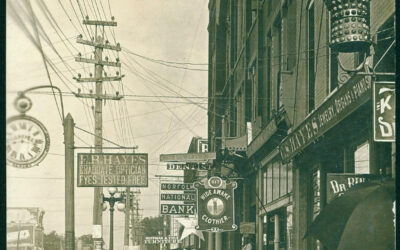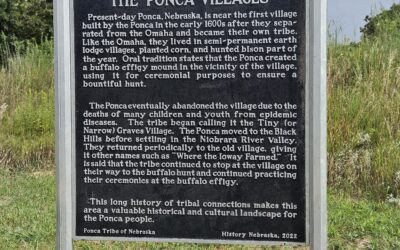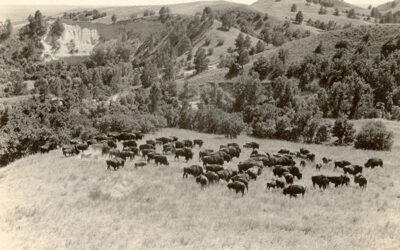April 6-7 marks the 150th anniversary of the 1862 Battle of Shiloh (aka Pittsburg Landing) in Tennessee, one of two major Civil War battles in which the First Nebraska Regiment participated. Commanding the regiment at Shiloh, as he had done at the previous Battle of Fort Donelson, was Lt. Col. William D. McCord of Plattsmouth, Cass County. If McCord had known he was soon to die, no doubt he would have preferred doing so while leading his men into battle. Instead, he lost his life far less gloriously in a tragic accident back home in Nebraska.
McCord, an Illinois native, moved to Nebraska Territory with his family from Burlington, Iowa, in 1857. He was soon elected Cass County sheriff. He also farmed and was an active Mason. When the fledgling Nebraska Republican Party was organized in 1859, McCord chaired the convention. He won appointment as one of the First Nebraska’s majors when the regiment was organized in June 1861 and was promoted to lieutenant colonel in January 1862. Just before the February 1862 Battle of Fort Donelson, McCord took over the regimental command after Col. John M. Thayer was assigned to lead a four-regiment brigade that included the First Nebraska.
By all accounts, the twenty-six-year-old McCord was a good officer. One of the First Nebraska’s captains wrote that “Colonel McCord was brave to a fault” at Fort Donelson. When the regiment engaged the Confederates during the second day’s fighting at Shiloh on April 7, he led his men through a series of firefights and artillery duels until the Rebel army finally withdrew. The First Nebraska suffered few casualties because the men had been ordered to lie down when not directly engaged and to fire from kneeling or prone positions. McCord and other officers, however, “stood up themselves to receive the shells and grape and bullets of the enemy.” Despite such exposure, the colonel escaped unscathed.
Two weeks later McCord resigned his commission, which officers were allowed to do. He cited “necessity arising from circumstances connected with my family affairs and a valuable estate in Nebraska Territory.” Exactly what those circumstances were is unknown, but awaiting his return was his wife, Minerva, two infant daughters, and his elderly mother. Indications are that McCord intended to rejoin the army after taking care of his personal affairs. Meanwhile, he re-entered territorial politics.
Both the Nebraska Republicans and Democrats set their 1862 conventions for August 20 in Omaha. One delegate was W. W. Cox of Lancaster County, who went to Nebraska City to take a steamboat to Omaha. On board, he found a “mixed company made up of prominent democrats and leading republicans of the South Platte country.” Both parties’ delegates spent the evening caucusing with “great political animation.” Around midnight the boat stopped at Plattsmouth, where more delegates came aboard, including William McCord. Cox recalled that “Some were overflowing with democratic zeal, many were full of old-time republican enthusiasm, and many were well filled up with ‘tangle-foot.'”
Not long afterwards, McCord left the hot and stuffy cabin to sit outside near the rail. One account said he had then fallen asleep and his hat dropped off. While leaning over to retrieve it, he fell overboard. Another report said he had become sick and fell into the river while vomiting over the side. As soon as the other men missed McCord they rushed outside but, as Cox put it, “We were as helpless as new-born babes while one of our number was swallowed up by the great, mad river.” Whether McCord simply slipped or whether too much “tangle-foot” helped lead to his death remains unknown. His body was soon found and returned to his grieving family. Today he lies buried in Pleasant Ridge Cemetery near Plattsmouth. The marker on his grave makes no reference either to his military service or to his untimely demise.
Plattsmouth, Cass County, in 1872. NSHS RG3384.PH10-24
“Map of the Battle of Pittsburg Landing,” John S. C. Abbott, History of the Civil War in America, 2 vols. (New York, 1863-66), 2:204.





